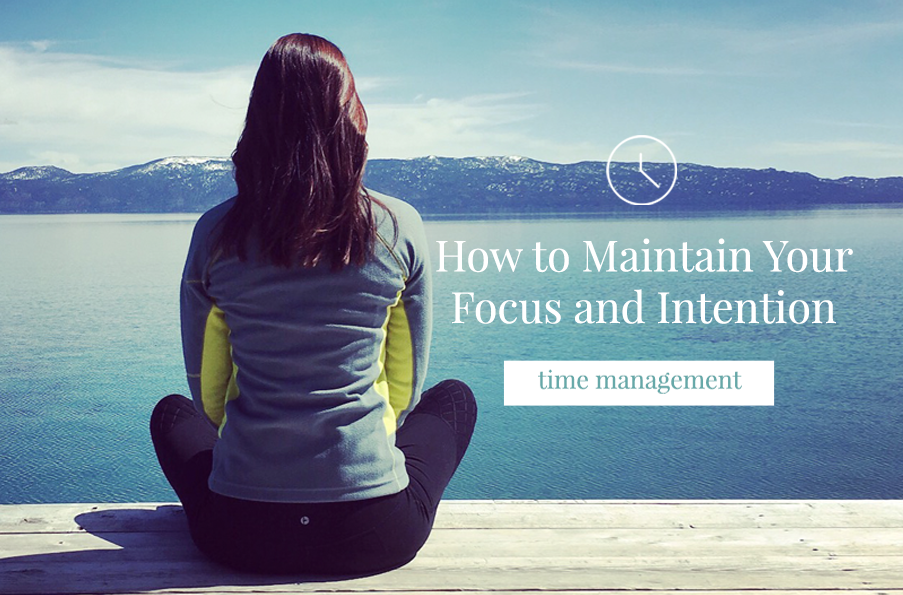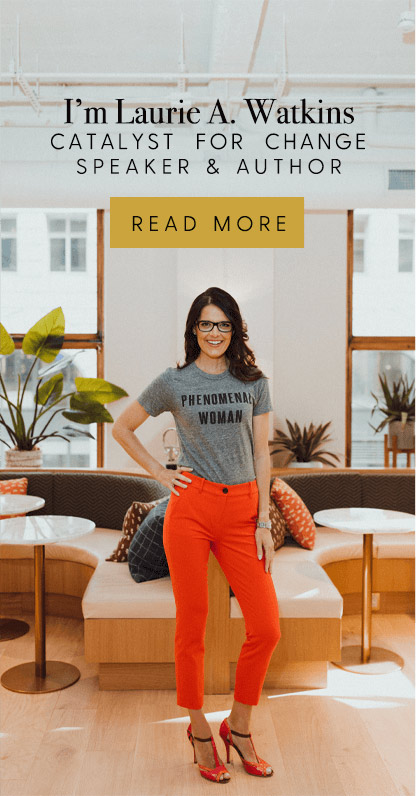Recently it has become more popular to set an intention for your day, or your workout session, or your trip, etc. I love this practice, because articulating your goals ahead of time increases the chances that you will stick to them. But how exactly does that happen?
While repeated words and mantras certainly have their own power in their articulation and repetition, setting your intention isn’t just some “say the magic words” hocus pocus. What you’re really doing is reminding yourself what you want to focus on, and gently keeping yourself from being distracted outside that focus. Then, when something tempting comes along – whether that’s a thought, an invitation from a friend, a new assignment from outside, etc. – you can more concretely picture whether it fits into your intention and focus on whether to accept it or move past it.
Let me use an example from my current crazy life to illustrate what I’m talking about.
A few weeks ago, I traveled to Washington, D.C., to speak at a few stops along my book tour. Understandably, since I previously lived in D.C., I still have a lot of friends and contacts there, so I knew that the demands on my time were only going to multiply. But my intention/focus for this trip was to speak at my events, drum up some buzz for my book launch and potentially meet with a few individuals who could offer me more speaking opportunities to spread my message.
I anticipated two things: 1) my former contacts would want to get together, invite me out for coffee or dinner, and 2) I would be tempted to say yes for lots of reasons – obviously, I wanted to see them and reconnect just for friendship’s sake, and I would probably justify it to myself as a good use of my time because, “It’s all networking and isn’t that ultimately what I am here to do?”
And that last part holds the key – no one knows our own weaknesses and temptations better than we do, and no temptation is stronger than one that’s mostly true, and logically justifiable. The good news is that that makes those temptations predictable, which means you can head them off. Here’s an easy tip to help you feel less overwhelmed, post an update to Facebook, Twitter, etc., saying, “Hey friends! I’m going to be in your neighborhood soon and I’m so excited! You know I want to see everyone but this is a very focused trip so I’ll be at XYZ events only. But I’d love to see you, so please come join me so we can catch up!” This will provide the dual effects of letting everyone know ahead of time that you need to focus on your planned events, and BONUS it can help promote your events, hopefully increasing turnout and support!
Of course, “If you want to make God laugh, tell him about your plans.” Meaning that you always have to stay flexible. And that’s what I ultimately did, consciously deciding to deviate from my plan when I could justify it to myself. But the point is that you HAVE a plan, even if you knew you were going to have to throw it out the window when circumstances changed. If you don’t plan, then you’ll always be in a reactive position, never in control of your own time. If you are too attached to your plan, you’ll be limited by your own dogma and won’t be able to seize unforeseen opportunities. Balance, folks.
I imagine some of you at this point may be saying, “That’s all well and good, Laurie, but I’m not traveling anytime soon, so how does this apply to my life?” This all still applies, because the formula for sticking to your intention can be applied in all sorts of circumstances. Here are some potential examples of setting your own intention and focus:
● Your intention for a specific weekend is just quality family time without work interruptions.
● Your intention for every Monday morning (or every workday morning) for a specified time period is only responding to emails, no new business. (As a corollary, your intention for a different time period may be only project work, no emails or phone calls).
● Your intention for the next month is to get your meals/appetites/cravings under control, so you’re setting a regular time aside for groceries, meal prep, cooking, etc., and you’re consciously declining social events at bars and restaurants with too much temptation.
Etc., etc. It doesn’t matter what your intention is. What matters is that you choose a specific goal or focus, that you set a specific time parameter to make it concrete and not open-ended, AND MOST IMPORTANTLY that you have specific actions that you plan to take (and specific temptations you will avoid) to support your intention.
I recommend using the word “intention” for a couple of reasons. First, we intended for that to happen, but we recognize that circumstances may change, and that we may need to be flexible. Second, we think of the aphorism “The road to Hell is paved with good intentions,” which can serve to remind us that intention is important but it’s not enough – we MUST support our intentions with corresponding action.
Bonus tip: making your intention public, like posting it on your Facebook/Twitter/etc. account, can help keep you accountable by broadcasting your plans publically, plus you might get extra benefits like publicity for your event (like I did), or a workout buddy, or a friend armed with tips and tricks…you never know!






